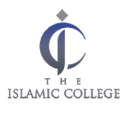ML403 – Methods and Perspectives in Islamic Law
Course Overview
The current module is devised to familiarise students with the most important methodological approaches and schools in the field of Cultural Sciences in general and in Islamic Law in particular. Since each competent researcher in Islamic Law ought to have a good grasp of a number of ‘methods’ for collecting, analysing and interpreting data and information, critically assessing available evidence, rival views and contesting theories, and providing satisfactory explanations for the phenomena under investigation, a selection of most relevant research methods is also introduced. In view of the fact that successful researchers should be able to present the results of their findings in effective ways, various techniques of writing and presenting research essays and projects on themes related to Islam will be introduced. The overall aim of the Module however, is to familiarise students with the ability of critical thinking and to equip them with the required skill and competence for discerning and exploring genuine ‘problems’ in the area of Islamic Law and developing their intellectual potentials for producing novel solutions for the detected problems. This ability in its apex is technically termed ijtihad.
Module Info
- Syllabus
- Strategy
- Material
sYLLABUS
- Researching and analysing Islamic resources for legal purposes
- The spirit versus letter in Islamic law
- Different approaches to ijtihad and its scope
- How can Islamic law face exigencies of modern life
- Critical Rationalism: A Sound Epistemological Framework for Studying Islamic Law
- Situational Analysis/ Situational Logic: A Suitable Methodology and Method for Mujtahids and Researchers in Islamic Law
- Hermeneutics: Hans-Georg Gadamer and Paul Ricoeur and the relativistic implications of the approach
- Thomas Kuhn’s paradigm and the historical phases of Islamic Law
- Using internet and appropriate software for research in Islamic Law
- Literature review with regard to major resources in various Islamic fields
- Essay writing skills for academic purposes
- Presentation of a research report
Learning, Teaching and Assessment Strategy
Assessment Modes
All learning materials are developed according to the SCATE format. Students are advised to study units available online followed by timetabled activities which are of crucial importance and require a serious attention. Students need to consult suggested reading materials which are not necessarily available online. At the same time, students are expected to contribute to Discussion Group as an integral part of their study. They would receive feedback regarding their activities and contribution by the module tutor. Extra reading and activities are provided for students who are interested to have a deeper and broader understanding of the issues of concern.
1. Formative Assessment:
Formative assessment for this module will consist of written feedback from the lecturer, questioning and discussion through the online forums. One draft of the students’ final essay (coursework) may be handed in to the lecturer at the 12th learning week for formative assessment, in which the lecturer will give the student feedback on how to improve their research and quality of writing.
2. Summative Assessment:
Students are required to submit 2 out of 5 Review Questions (RQ) and 2 out of 5 Activities (Act) as the weekly assignments for each module during the semester. All of these assignments as well as students’ final essays at the end of the semester will be commented and marked by tutors. Students can see those comments and marks in their drop box which are available in their D2L accounts. Finally, students are required to submit an Individual coursework -final essay (4000 words) on a relevant topic approved in advance by the module tutor.
Assessment Weighting
Activities: 30%
Review Questions & Discussion Group: 10%
Final Essay (Coursework): 60%
Students should get at least a pass mark for all three above components.
Learning Material
Core readings
- Drew, P. Raymond, G. Weinberg D. eds. (2006) Talk and Interaction in Social Research Methods, Sage Publications
- Fairelough, N. (2006) Discourse and Social Change, Polity Press
- Harding S. (ed.), (1987) Feminism & Methodology, Bloomington, IN: Indiana University Press,
- Janet M. Box-Steffensmeier & Bradford S. Jones, (2004) Event History Modelling: A Guide for Social Scientists, Cambridge: Cambridge University Press
- Paya, A (2015) Methods and Perspectives in the Islamic Studies, ICAS Press, (forthcoming)
- Paul S. Gray, et.al. (2007) The Research Imagination, Cambridge: Cambridge University Press
- Scott W. VanderStoep, Deirdre D. Johnston. (2009) Research methods for everyday life: blending qualitative and quantitative approaches, John Wiley & Sons
- Singh, K. (2007) Quantitative social research methods, SAGE Publications


